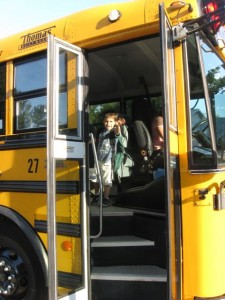As a parent of two school-age children, this is a week of celebration. They’re back to school! For my boys, Kyle and Bruce, it’ll be another great year of learning and making friends. This summer we maintained a certain amount of curriculum by getting library books, doing a couple pages from workbooks every day and continuing to play the piano. Of course, it wasn’t with the same level of effort or time commitment as a regular school day. Climbing trees, playing tennis and skimming along the slip n slide were daily activities. Heather and I also found ways to “encourage” the boys with little rewards. I was amazed at how quickly they could finish a workbook when Legos are on the line.
How does this relate to you? In my round-about way, I’m talking about continuing education. Staying informed with the latest studies and current trends. How can you keep up-to-date? By reading my monthly newsletter, listening to a book on disc or taking courses at a local campus. Learning is an ongoing process. In my opinion, you don’t reach a level of knowledge and just stop. Just like you can’t stop exercising and expect to stay in shape. As I tell my clients, You can’t coast uphill. One of my favorite sources of health news is Science News magazine. It’s a great publication. That’s where I learned about the anti-cancer properties of green onions and the ongoing research here at UW Madison. I also remember reading an article about harmful bacteria in pre-washed salad mixes . . . six months before it came out in the news.
Recently, a Radiologist client loaned me a 20-disc lecture series about stress and the effects on the human body by Professor Sapolsky of Stanford University. It was very informative and helped give me a deeper appreciation for the body’s inner workings.
So what health and fitness topics interest you? Diet and nutrition? Sports specific training? Rehabbing an injury? It’s all out there to learn. Books to read, experts to listen to and websites to research.
Beyond the academic approach, a key component to achieving your health and fitness goals is to learn what movements, exercises and activities your body likes to do. Develop a body awareness. How can you do this? Experiment. To get technical, try stuff. If for example, jogging causes a sharp pain in your right knee, an achy low back or a nagging hip pointer, you’ll need to make some adjustments. What kinds? Look at the geography of your route, total mileage, running form and shoes. Need to look closer? Look at how/if you warm up and cool down, rest, hydrate, etc. Soon you’ll get a Ph.D. in body awareness.

